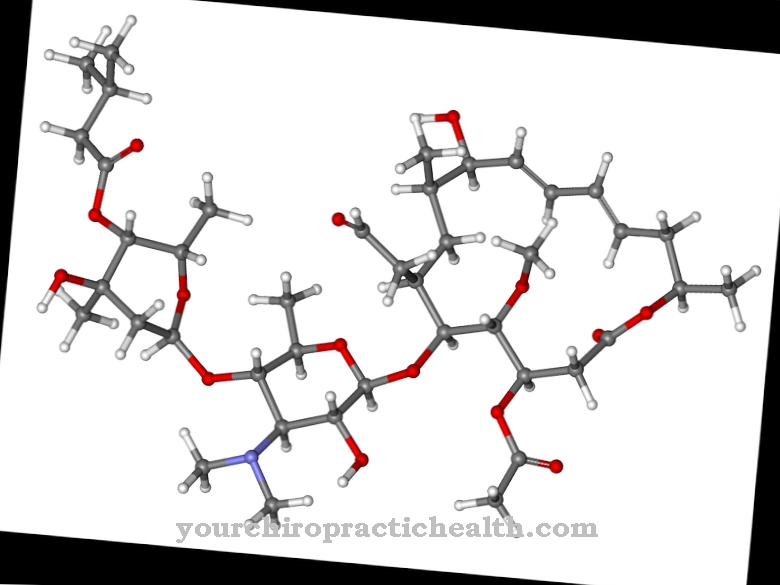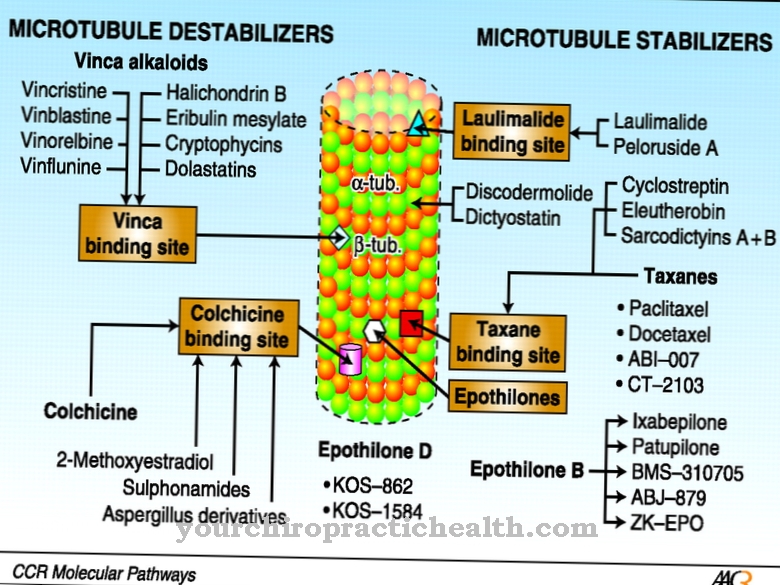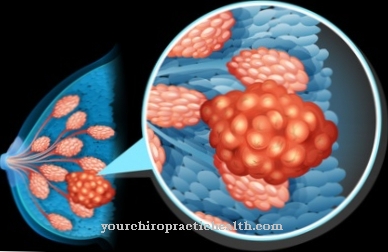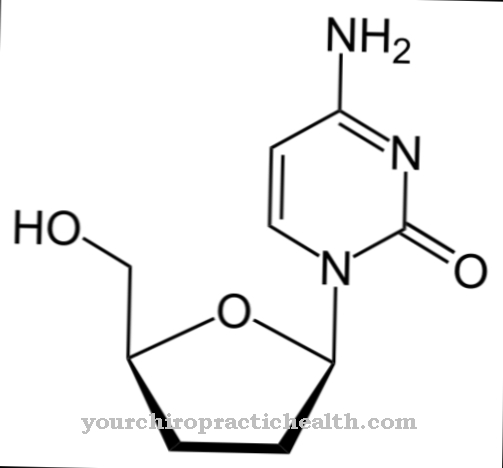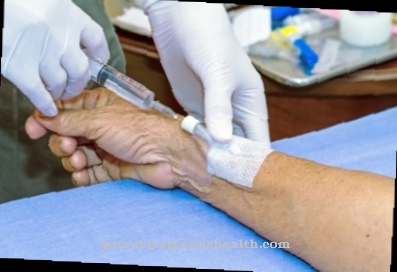As Mefloquine is the name of an active ingredient that is used to treat and prevent malaria. Due to its severe side effects, the manufacturer has stopped selling the drug in Germany.
What is mefloquine?
Mefloquine was jointly developed by the Swiss pharmaceutical company F. Hoffmann-La-Roche AG and an institute of the US Army to treat the tropical disease malaria. Prevention is also possible with the synthetic drug.
Mefloquine requires a prescription and a patient ID card must be presented. In addition, a list of possible contraindications must be completed before the prescription. The reason for this are the strong psychiatric and neurological side effects of the drug, which caused controversial discussions even when it was first introduced. Mefloquine has been linked to multiple suicides, attempted suicide, and suicidal ideation. However, there was no clear evidence.
In Germany, mefloquine was previously available under the trade name Lariam®. In recent years, however, the sales figures of the drug in this country have shown a decline, so that it has lost its importance for malaria prophylaxis. Since 2013, a prescription of the agent has only been possible under special conditions. In February 2016, the manufacturer Roche decided to waive the approval of Lariam® in Germany. Sales of the mefloquine preparation were discontinued in April 2016. However, pharmacies and wholesalers are allowed to sell the drug for a further two years. After this period, mefloquine can be imported from abroad.
Due to the severe side effects, the active ingredient is no longer recommended for emergency self-treatment. The DTG (German Society for Tropical Medicine), however, continues to give mefloquine an important role in the therapy of children and pregnant women, provided that the precautionary measures are observed. This is especially true when traveling to areas where there is a high risk of malaria.
Pharmacological effect
Mefloquine has an anti-parasitic effect and can be used against malaria parasites such as Plasmodium malariae, Plasmodium vivax, Plasmodium falciparum and Plasmodium ovale. In its structure, the synthetic drug is related to other anti-malarials such as chloroquine and quinine. Its properties include disrupting the pathogen's most important metabolic processes. This ultimately causes the parasites to die.
The human body absorbs mefloquine well and is highly bound to plasma proteins. The plasma half-life is approximately 20 days. The active ingredient is primarily eliminated through the stool. It can take two to three weeks for the mefloquine to be excreted from the body again. As a result, the side effects of the drug often show up after several weeks.
Medical application & use
Mefloquine is used in both the treatment and emergency management of malaria. This applies in particular to combating the malaria pathogen Plasmodium falciparum, which is difficult to treat with other anti-malarial preparations.
If Plasmodium vivax malaria is treated with mefloquine, further treatment of the parasites in the liver with other malaria preparations is necessary to prevent relapses. This includes u. a. Primaquine.
Mefloquine can also be taken to prevent malaria. However, this only applies if the person concerned undertakes a trip to regions in which Plasmodium falciparum strains occur. If in doubt, a specialist tropical doctor should be asked for advice.
Mefloquine is administered in the form of tablets. For malaria prophylaxis, the agent is taken once a week after a meal. The prevention should start a week before departure. After the end of the trip, the patient must continue taking the drug for another four weeks. While taking mefloquine, the patient should always have the enclosed patient card with him and present it to any responsible doctor.
Risks & side effects
The use of mefloquine can lead to psychiatric and neurological complaints. The most common symptoms include unusual dreams, insomnia, dizziness, imbalance, drowsiness, nausea, vomiting, headache, abdominal pain, and diarrhea.
Other possible side effects are depression, aggression, states of confusion, hallucinations, panic attacks, paranoia, reactions that resemble a psychosis, discomfort in the limbs, unsteady gait, tremors, forgetfulness and fainting. Epileptics have an increased risk of seizures.
In addition, mefloquine is credited with inducing suicidal tendencies. If the symptoms described occur during the use of mefloquine, the use of the active ingredient must be stopped immediately and the attending physician informed. They have the option of prescribing another antimalarial drug.
Because mefloquine remains in the body for an unusually long time, the side effects can still occur weeks after the end of therapy. If the patient suffers from hypersensitivity to mefloquine or similar substances such as quinidine or quinine, treatment with the active ingredient must not take place. This also applies in the presence of severe liver dysfunction and blackwater fever, which is a severe malaria complication with hemoglobinuria.
A so-called stand-by emergency treatment with mefloquine must not take place if there is depression, schizophrenia, psychosis, general anxiety disorders or mental disorders. Even after attempted suicide or self-endangering behavior, the drug should not be given.
The simultaneous use of mefloquine and other drugs can cause disruptive interactions. It must therefore not be administered together with active substances that are related. These are chloroquine, quinine, quinine sulfate and quinidine. There is a risk of heartbeat changes and seizures.
The effect of mefloquine is weakened by a simultaneous intake of St. John's wort extracts. The same effect comes about by taking the antibiotic rifampicin at the same time.

